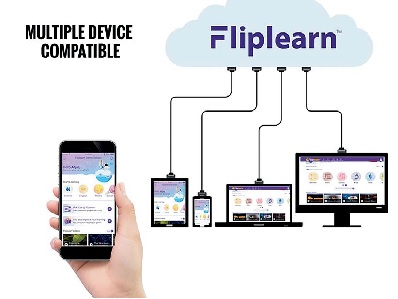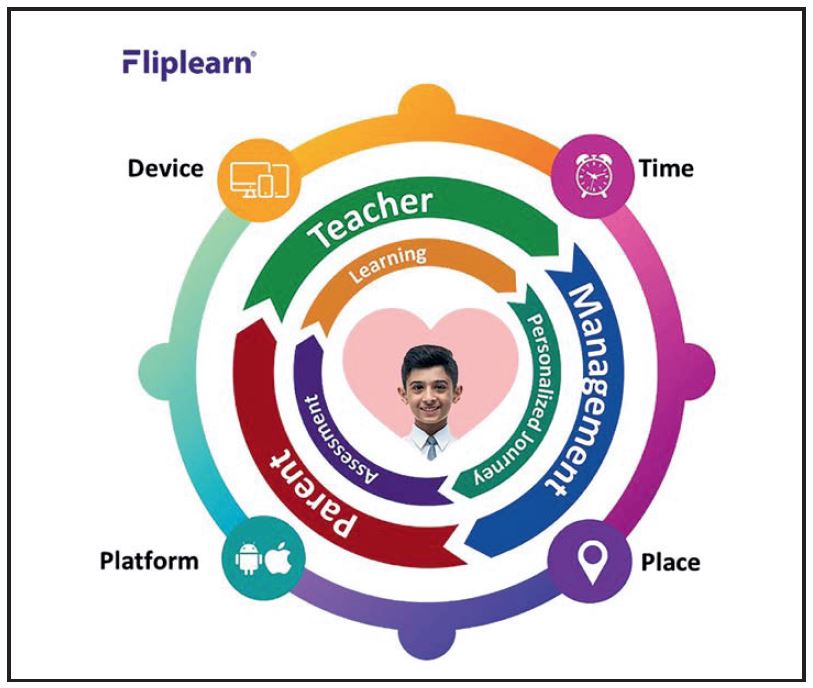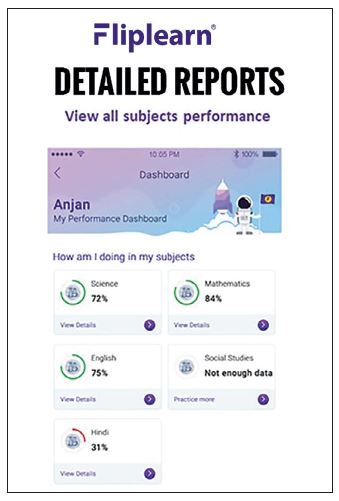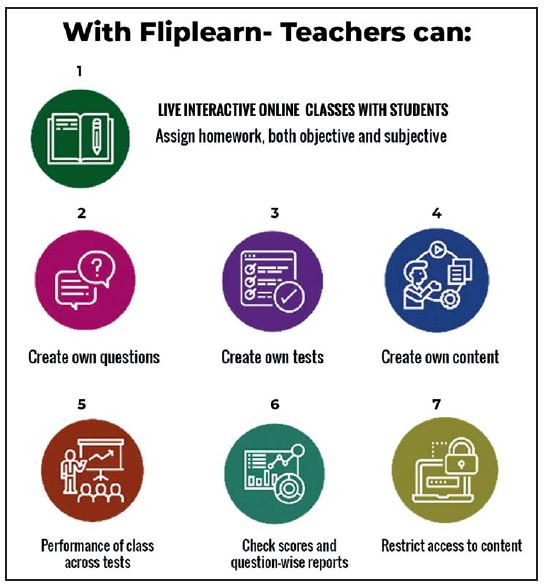 Divya Lal, Managing Director, Fliplearn Education Pvt. Ltd in conversation with EducationWorld’s Paromita Sengupta
Divya Lal, Managing Director, Fliplearn Education Pvt. Ltd in conversation with EducationWorld’s Paromita Sengupta
The Ministry of Education (MoE) has introduced what may be the biggest and most important policy change in recent times. What do you make of the proposed changes?
It’s refreshing to see progressive and forward thinking reforms being proposed by the Ministry of Education. I personally believe these proposals for change are a step in the right direction that will help shift focus from “rote” to “active” learning. NEP 2020 is a transformative policy document for schools and teachers as they will become more “digitally empowered”. This transformation will, however, require the involvement of school heads and teachers in adopting the “Phygital” model of education to align with the MoE’s vision. But I am confident that with the right kind of collaboration, the goal can be achieved successfully.
The current education structure has a few drawbacks. Fortunately, they were being closely monitored and a counter action plan drawn up. The success or failure of these proposals, however, will be determined only after their implementation.
As someone who has been at the forefront of digital learning solutions, what are your takeaways from the government creating a dedicated unit to orchestrate the development of learning infrastructure?
It doesn’t surprise me as I have always believed that for digitisation of learning to become a reality was only a matter of time. After all, digital learning helps schools and other education institutions to transition to a blended learning model where classroom learning is supplemented and supported by digital solutions. It has become imperative for digital learning to be at the core of every school’s teaching-learning methodology. In my opinion, the Covidinduced national emergency lockdown imposed in the end of March has opened the eyes of government on the benefits and limitless opportunities of digital learning technologies. Fliplearn Edge alone has supported 200-plus partner schools with 9,000 teachers guiding an aggregate 200,000 students in the past five months. It is unfortunate that multiple schools in rural India lack the resources to shift teaching-learning to an online platform. Hopefully the new reforms suggested by the government in NEP 2020 will help reduce the digital divide in urban and rural India.
 The NEP enables students to independently choose their subjects based on their personal preference. Does that create more challenges for schools?
The NEP enables students to independently choose their subjects based on their personal preference. Does that create more challenges for schools?
Yes indeed! NEP 2020 has recognised students’ personal preferences in subject/discipline selection. With the Ministry of Education making this long awaited and frankly tough call to allow students to pick their preferred subjects, my sense is this will pose a challenge for educators and school administrators before they set themselves up for a future with endless possibilities for all. Multiple entry and exit options proposed for degree programmes are also a great initiative. This policy will effectively make college degrees more flexible and less restricted with students allowed to pick the duration of their study programmes.
 And what kind of strategy would you suggest for school leaders to adapt to the challenges the NEP poses?
And what kind of strategy would you suggest for school leaders to adapt to the challenges the NEP poses?
School leaders must embrace digital learning and use it to optimize the in-class experience. Teaching methodologies urgently need to shift from “rote” to “active” learning by encouraging technology usage among students. This will help build their curiosity and knowledge, which can be addressed by school teachers using application based examples.
In fact, fliplearn.com Edge is designed to help schools support this 21st century learning methodology. With Fliplearn Edge that comes pre-equipped with cutting-edge innovative solutions — virtual classrooms, class and individual assessments, automated corrections, class assignments, etc. can all happen remotely, and even its automated checker feature gives teachers more time to focus on personalised learning of each child rather than the mundane task of administration and  manual checks. I can assure you this technologybacked learning is going to become more and more common as NEP 2020 kicks in.
manual checks. I can assure you this technologybacked learning is going to become more and more common as NEP 2020 kicks in.
Students will no longer be restricted to simply commerce, science and humanities streams. Is this a change we were prepared for?
Yes indeed! Indian education will focus on a multi-disciplinary approach to prepare students for career challenges. At Fliplearn, we work towards the philosophy of “Learning for Everyone” that supports students from any discipline, class and board, unlike solution providers that emphasise on science, mathematics and accounts. We are delighted to have made the effort of forecasting these issues in advance.
Overall, do you think the NEP gives more independence to students?
Yes absolutely. With the freedom to choose subjects, languages and extra-curriculars based on their preferences and with access to digital platforms, students will actively participate in learning and emerge with more practical mind-sets. The NEP also addresses Indian education’s lack of application-based learning – a practice not closely followed by schools even today. The introduction of virtual labs will enable students to solve reallife problems by exploring and experimentation. With all this in place, NEP 2020 will help create problem-solving, confident and independent thinking community leaders.
 How do you think Edtech and Fliplearn will contribute to the future of Digitization?
How do you think Edtech and Fliplearn will contribute to the future of Digitization?
The primary objective of NEP 2020 is to build high standards of teaching-learning in public and private schools. In my opinion, digitization of schools in India is the most welcome proposal for K-12 and higher education. Fliplearn is constantly working with schools, teachers, parents and students pan India to create a robust and extremely personalised solution for each stakeholder. At Fliplearn, technology is enabling schools in education planning, teaching-learning, assessments, administration, management and regulation.
The National Education Policy 2020 certainly opens the doors for the future of edtech, but it might need to address the issue of Internet access and affordable digital devices more seriously, to enable seamless teaching-learning for students residing in the remotest villages of India. Fliplearn is all geared up to bridge this divide in whichever way it can!
Also read: 50 Leaders who can revive Indian education – Divya Lal


























